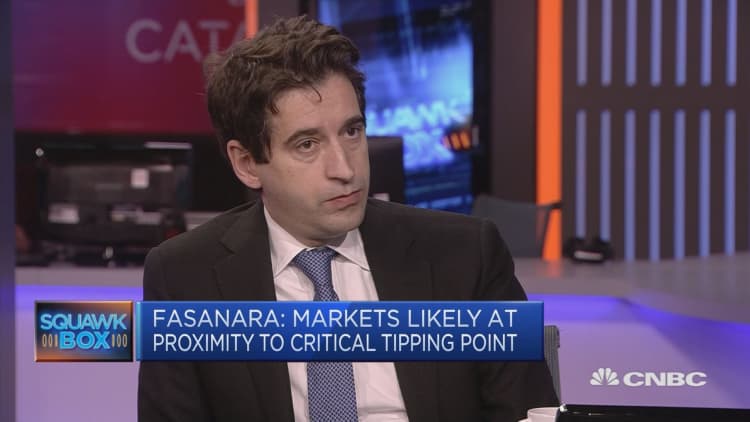The U.S. Federal Reserve is set to increase interest rates throughout 2018 and this is going to support equity markets, according to J.P. Morgan Asset Management's latest quarterly markets outlook.
The central bank announced in March an increase in rates and hinted that the path of rate hikes could become more aggressive. Markets are mostly pricing in two more rate rises this year, although some analysts foresee three more increases by the end of 2018.
Higher interest rates are traditionally seen as a negative for stock markets. This is because higher rates mean that companies will have higher borrowing costs and, thus, less room to pay dividends to investors. However, according to J.P. Morgan Asset Management, the path of rate increases will be "very slow and gradual" and is "unlikely to significantly restrain corporate earnings or equity returns."
"Interest rates aren't anticipated to pose a problem for the economy or equity markets this year," Mike Bell, global market strategist at J.P. Morgan Asset Management, said in the quarterly report out Tuesday. "Instead, financial stocks should benefit." This is because higher interest rates allow banks to charge higher fees and, thus, boost their performance.
The report said that equities have only come under pressure when the two-year Treasury yield rose above 3.5 percent. It currently sits at 2.4 percent.
The outlook warned, however, that it is important to keep an eye on the yield curve — which tracks the movement of both the 10-year and the two-year treasury yield. Prior to some of the past recessions, the two-year Treasury yield rose above the 10-year yield, although at the moment, the former is still below the 10-year note, but has recently moved closer to it.

But there are divergent opinions about the future of the equity market.
Yacine Kanoun, managing director at Shield Portfolio Management, told CNBC's "Squawk Box Europe" that there will be a 1 or 2 percent increase in stocks, but then they will come off.
"After the first surprise effect of the earnings, which started last week, I think that in the next few days we are going to increase another 1 or 2 percent and then it will be over and then the market might fall and if it reaches again below 2600(K) is going to accelerate down," he said.
The SP500 is currently above 2700K. For the last week it has been supported by stronger-than-expected earnings, including by Netflix, Johnson & Johnson and Goldman Sachs.
Francesco Filia, chief executive at Fasanara Capital, said that the recent sell-off in bonds and equities could be "an early warning signal of what is to come."
In March, equities were under pressure after concerns of tougher regulation on tech companies as well as over fears of a potential global trade war. In February, markets saw a correction on rising worries over a sudden uptick in inflation.


